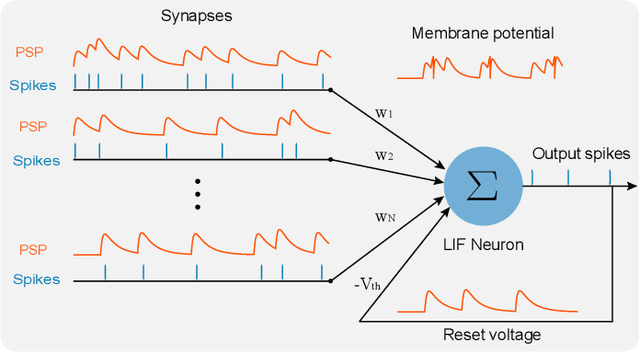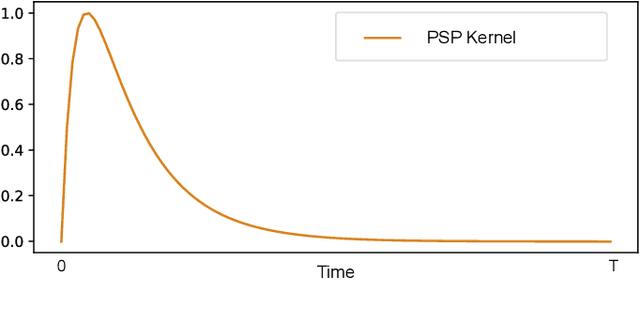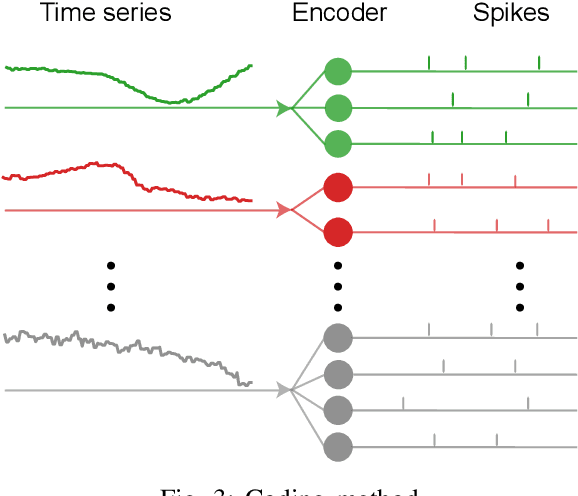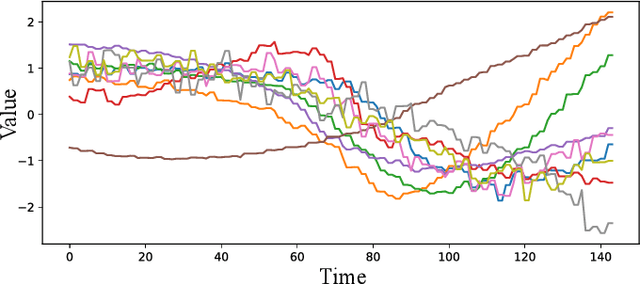Multivariate Time Series Classification Using Spiking Neural Networks
Paper and Code
Jul 07, 2020



There is an increasing demand to process streams of temporal data in energy-limited scenarios such as embedded devices, driven by the advancement and expansion of Internet of Things (IoT) and Cyber-Physical Systems (CPS). Spiking neural network has drawn attention as it enables low power consumption by encoding and processing information as sparse spike events, which can be exploited for event-driven computation. Recent works also show SNNs' capability to process spatial temporal information. Such advantages can be exploited by power-limited devices to process real-time sensor data. However, most existing SNN training algorithms focus on vision tasks and temporal credit assignment is not addressed. Furthermore, widely adopted rate encoding ignores temporal information, hence it's not suitable for representing time series. In this work, we present an encoding scheme to convert time series into sparse spatial temporal spike patterns. A training algorithm to classify spatial temporal patterns is also proposed. Proposed approach is evaluated on multiple time series datasets in the UCR repository and achieved performance comparable to deep neural networks.
 Add to Chrome
Add to Chrome Add to Firefox
Add to Firefox Add to Edge
Add to Edge